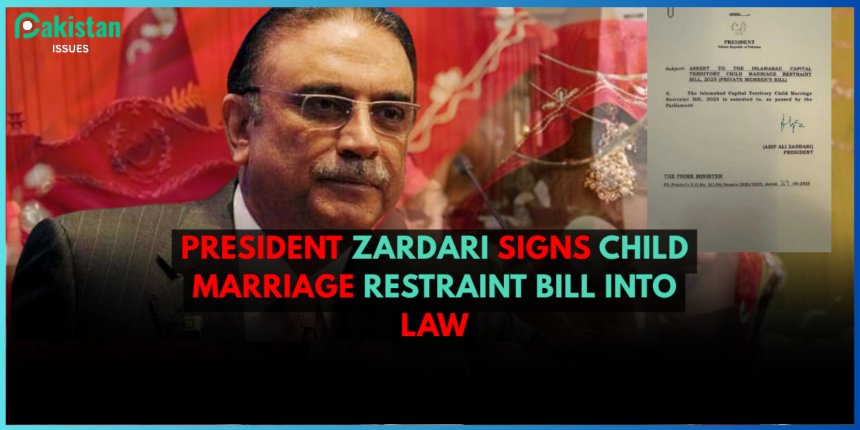Islamabad – President Asif Ali Zardari has signed a bill into law to prohibit child marriage in Pakistan, which makes it illegal for any person under the age of 18 to be married. The move is seen as a long overdue pilot step toward protecting children’s rights.
The bill, passed earlier by both houses of Parliament, sets a clear legal age of marriage for girls at 18 — in line with international standards. Those involved in arranging or performing underage marriages will now face penalties, including fines and jail time.
“This law is about protecting children and giving them the right to a full childhood,” said a brief statement issued from the President’s Office. The measure is being seen as a direct response to growing concern over the number of child marriages in various parts of the country.
Pakistan has one of the highest rates of child marriage in the region. In many cases, girls are married off in their early teens, often without consent and with no access to education. Activists say this new law could serve as a turning point — if properly enforced.
Child rights groups and legal experts welcomed the signing, saying the law offers a solid legal tool to challenge deep-rooted traditions that harm girls’ futures. “This is not just symbolic,” said a rights campaigner based in Lahore. “If implemented, it can actually save lives.”
But the real challenge, experts warn, lies in enforcement. In many rural areas, early marriage remains common, and local authorities often turn a blind eye. Without grassroots education and legal follow-up, the law may struggle to bring real change.
Still, many see this as a step in the right direction.
“It’s the beginning of a cultural shift,” said a women’s rights lawyer. “It tells parents, clerics, and local leaders that underage marriage is no longer just frowned upon — it’s a crime.”
The new legislation also introduces mechanisms for reporting and prosecuting offenders, but human rights groups say more will be needed. Training law enforcement officers and educating communities are key to ensuring the law doesn’t remain only on paper.
The bill is being praised not just for its legal strength, but for the message it sends: that Pakistan’s children, especially girls, deserve protection, choice, and time to grow up.










